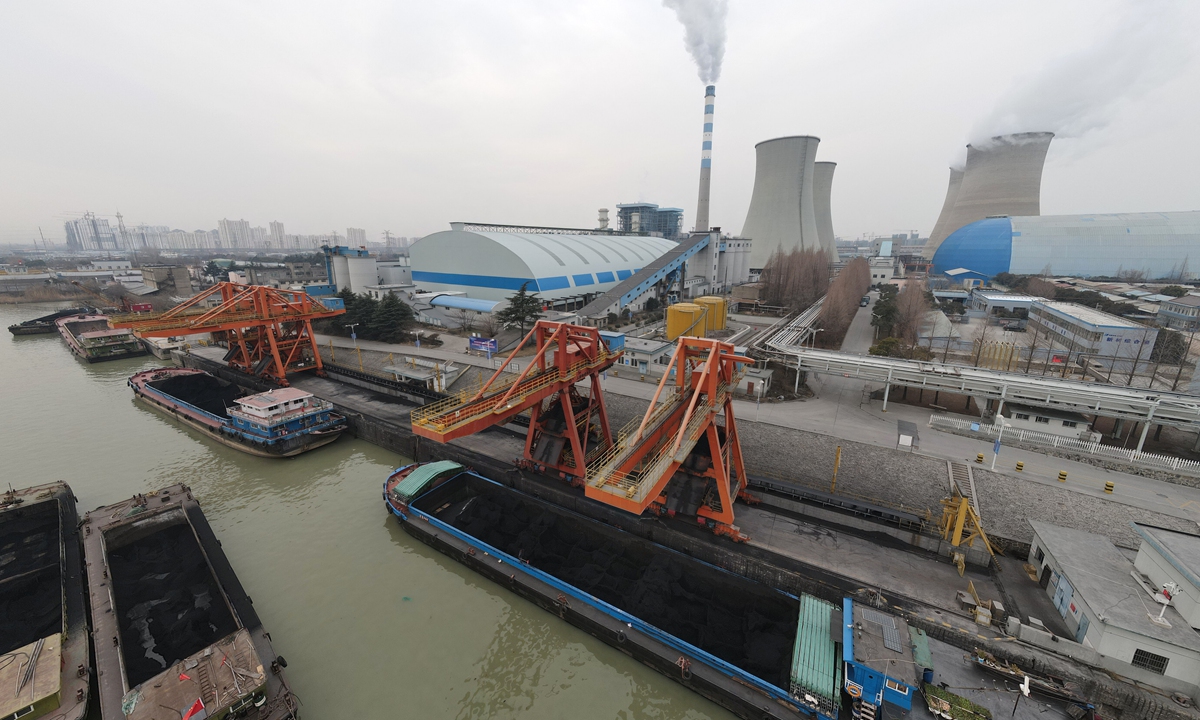
Coal ships berth at the wharf at a power plant in Yangzhou, East China's Jiangsu Province. The 1,000-year-old Grand Canal has become a key transportation artery for vessels loaded with coal in central China to sail south to allow coal-fired plants there to generate more electricity as power demand soars in bitter winter weather. Photo: VCG
Tangshan in North China's Hebei Province, a major coal transport hub, is dealing with potential disruptions to coal supplies amid a new COVID-19 outbreak, which prompted traffic controls and other anti-epidemic efforts since Sunday.
Industry sources told the Global Times on Monday that the impact on supplies and prices is so far limited and controllable, given high inventories, flexible transport methods and government contingency measures.
An employee at Tangshan Caofeidian Coal Port Co told the Global Times on Monday that there is no particular impact yet, since most coal arrives by train from elsewhere and is sent directly to the port, before going to other places in China by ships, which aren't affected by traffic controls.
"The port operation is smooth, with staffers working in three shifts and living at the port," the employee said.
Moreover, there are sufficient stocks in the port yard - millions of tons of coal, according to the person.
Tangshan reported two new local confirmed cases on Sunday, according to the government's latest report on Monday, compared with seven cases reported on Saturday.
While epidemic prevention measures aren't likely to affect supplies, market prices may rise, industry insiders said.
An industry veteran told the Global Times that the price of coking coal in Tangshan Port may face a big impact, since coking coal is priced on a quarterly basis, and it's about time for prices for the next quarter to be set.
The market price for coking coal is around 3,000 yuan ($472) to 3,500 yuan per ton, while the long-term contract price is around 2,100 yuan, the insider said, a fairly large gap.
"The long-term contract price could go up around 20 percent if the epidemic situation in Tangshan continues for a week," the person said.
Restrictions on truck movements may also have an impact, with the delivery time extended from two or three days to four or five days, given the need for sterilization and nucleic acid tests for drivers, Hou Lei, an analyst with the Shanghai Metals Market, an industry news portal, told the Global Times on Monday.
Analysts said that any impact on prices will be minimized by government contingency measures. The local government is issuing passes to facilitate coal shipments from ports for inter-provincial transportation, Hou said. Also, the heating season is about to end.
There is also not much demand for coking coal from the steel industry, because infrastructure projects are also being affected by the epidemic, so there's little pressure from that source either, Hou said.

